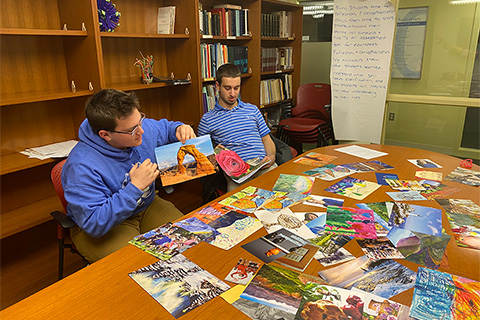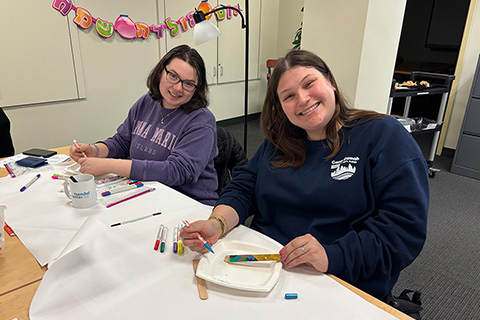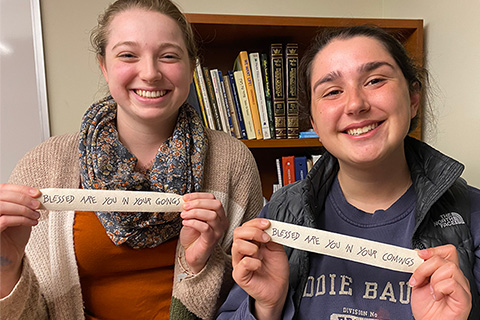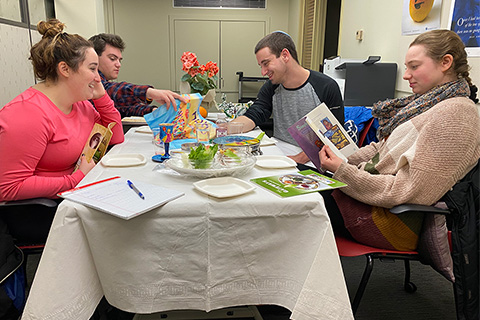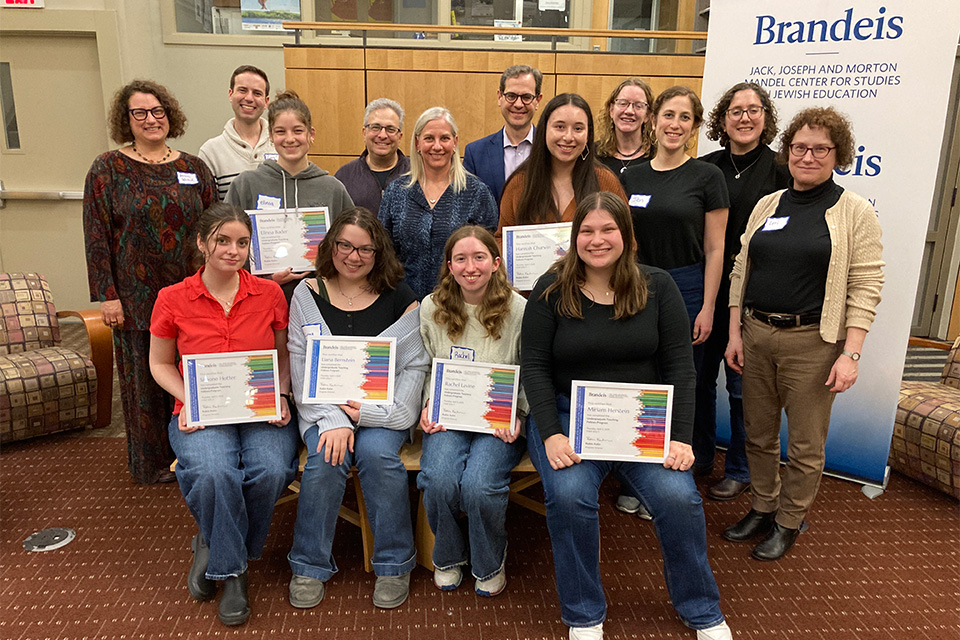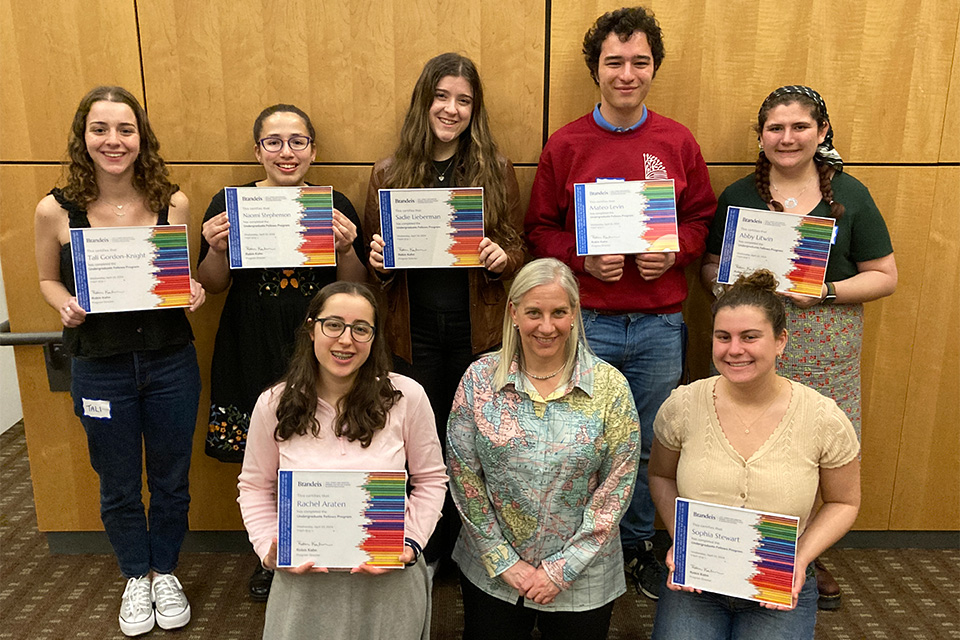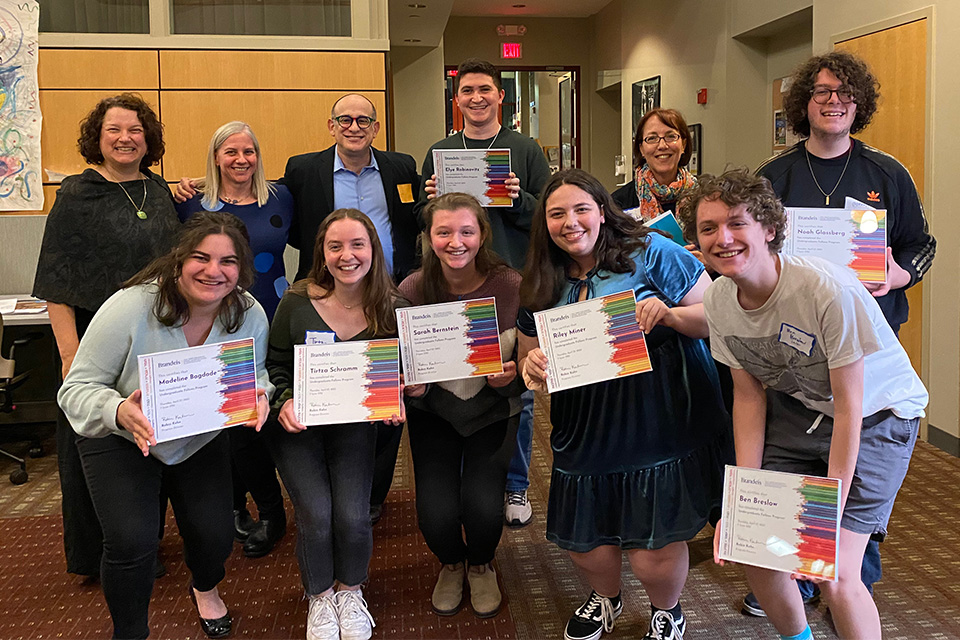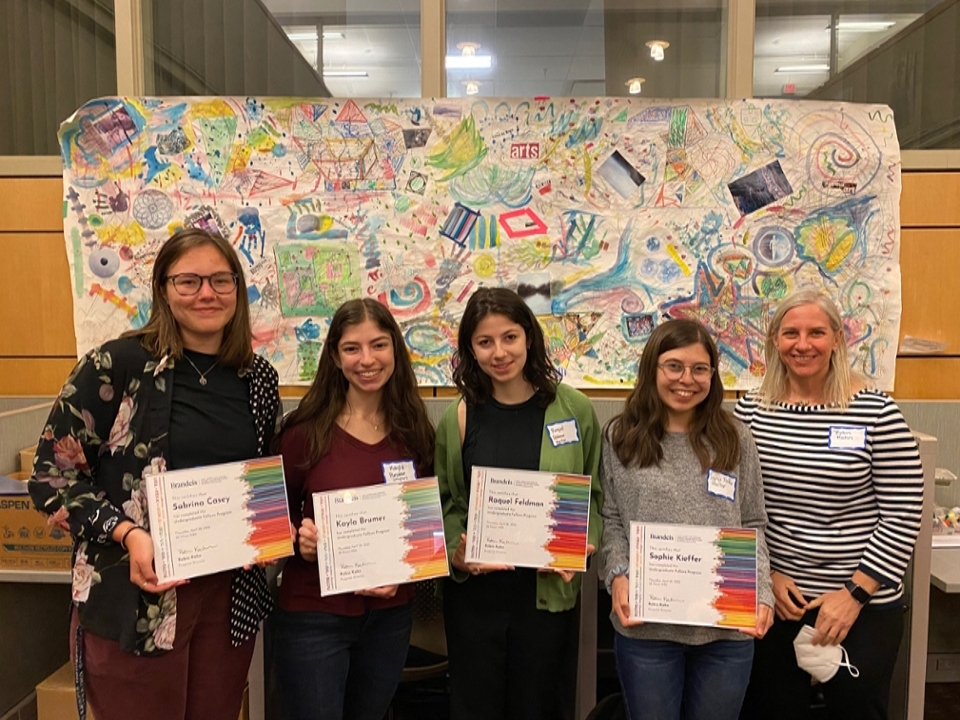Undergraduate Teaching Fellows Program
MCSJE's Undergraduate Teaching Fellows program offers professional learning to undergraduates who are working in supplemental Jewish education. Working in collaboration with other student fellows, under the mentorship of a master educator, they explore their own Jewish journeys, reflect on their teaching, develop new inquiry skills, and gain insight into their students’ learning.
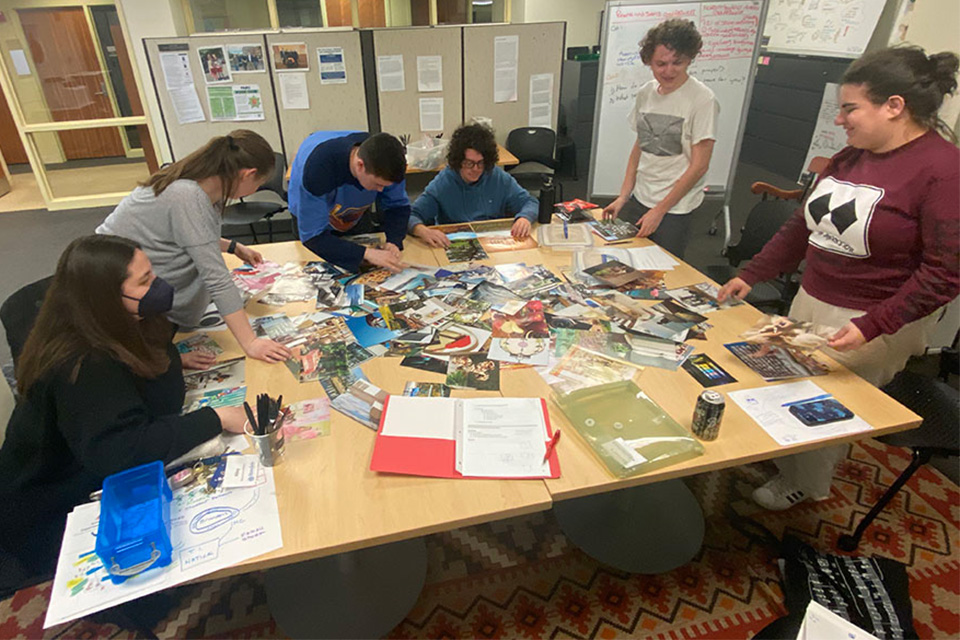
The UTF program brings together Jewish students from diverse backgrounds with varied levels of observance, and those with day school, supplemental educational and Jewish camp experiences. United by a shared interest in Jewish education and a commitment to supporting Jewish youth, UTF students engage in meaningful learning. The program creates a pluralistic environment in which participants gain a deeper appreciation for the diversity within the Jewish community and recognize the unique perspectives they each bring. They also have the opportunity to learn from one another about the different practices found in various synagogues and communities.
In addition to the Brandeis cohort, the program now includes cohorts in Boston and Providence.
Fellowship Highlights
- Explore educational theory and pedagogy
- Investigate best practices for classroom management
- Share challenges & dilemmas in a safe space
- Learn how to support students with special needs
- Reflect on & hone your unique teaching styles and lesson plans
- Benefit from the mentorship of teacher educators
Participants meet 12 times during the academic year. Each presents a lesson to peers and provides thoughtful feedback to others.
Submissions for the 2025-26 fellowship are now closed.
Students interested in learning more about the program can complete our information form or nominate themselves to participate. Community leaders can nominate a student for participation.
Learn more about the UTF program from past Fellows
“These seminars helped me gain a great amount of perspective because they gave me tips on how to be proactive about situations that might arise in my classroom. I especially enjoyed conversations when they were centered around another teacher’s issues, so that I could take time to reflect on my class.” Leah '25
UTF in the Media
Bruchim Haba’im: UTF Fellows Kick Off a New Year of Jewish Learning and Teaching (September 2025)
THE JEWISH EXPERIENCE: MENTORING UNDERGRADUATE Jewish EDUCATORS (March 2023)
More about Robin Kahn and the Undergraduate TEACHING Fellows (January 2022)
